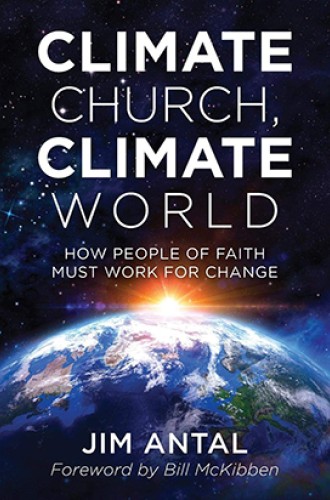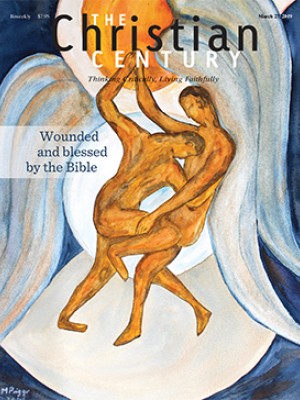Horror and hope in the face of climate change
Jim Antal calls for a green reformation among churches.
Are Christians talking in church about the impending global damage due to climate change? Are they moving toward concrete action to prevent further harm, understanding how much the everyday life of the church needs to change? The answer is that likely they are not—a grim realization that looms behind Jim Antal’s urgent and important book.
Antal’s starting point is rooted in both horror and hope: the horror of an unprecedentedly violent global shift and the hope that humans, especially people of faith, have the power and vision to lessen the earth’s ruin and soften its backlash. Appropriately serious but not pessimistic, Antal’s work is devoted to offering clergy and laypeople a vision of Christianity in which they can understand and embrace their own role in caring for creation.
Read our latest issue or browse back issues.
Global climate change, Antal argues, is a problem that humanity is uniquely unprepared to face. The snares of privileged avoidance, murky media campaigns, and the human brain’s inability to grasp long-term risk have hindered what otherwise should have been a rapid response. To bring the problem into focus, Antal deploys a military definition: climate change is a threat multiplier, a challenge to security that is dangerous in its propensity for inciting and intensifying other kinds of evils. Food shortages and resource depletion increase poverty, prejudice, and violence—damage that is unevenly distributed across global lines of class and privilege. Extreme weather events leave behind refugees whose fate lies in the hands of nations already locked in immigration struggles. The intersection of these dangers, Antal suggests, makes climate change perhaps the greatest moral struggle humanity has faced.
For the church, climate change presents a “kairos moment” in which Christians have an unprecedented opportunity to shape life on this planet for the better. It is a moment for which the church was born, a time of reforming faith and life to make them congruent with God’s dream for humanity.
This reformation will not be easy. The church must rethink its vocation to focus on meeting needs rather than enduring its own survival. It must be a beacon not of culture past but of present truth, Antal writes (in the spirit of John 18:37). It must reignite the fires of civil disobedience and speak truth to power, taking part in divestment campaigns and stripping egregious offenders of their license to consume without restraint. It must extend its ethical consideration to other lives and to future generations. As Christians, we must “unleash our imaginations, unmuzzle our mouths, unbind our hands, unshackle our feet, and open our wallets.” Antal implores pastors to consistently preach the truth of humanity’s sin against God’s creation—at least once per month, he argues. In short, the church must be the people of God in a broken time. A new earth might arise from this way of hope, a global community for the common good with new metrics for understanding success.
Antal is well suited to address Christians on this subject. A climate activist and leader in the United Church of Christ, he has authored two UCC General Synod resolutions: one to divest from fossil fuel companies and another to declare a new moral era in response to President Trump’s withdrawal from the Paris climate accord, the latter of which forms the foundation of this book. He is gifted at communicating vital and substantive moral imperatives to wide audiences.
Considering that the main body of the text is a slender 184 pages, Antal covers a surprising amount of ground from various angles. Fictional interludes that imagine positive and negative climate futures meet the reader’s emotions just as Antal’s sweeping rhetoric, sound theology, and grounded activism encourage the reader’s faithful and practical engagement with his ideas. Climate Church, Climate World is intended to be read in groups and discussed. Discussion questions at the end of each chapter help plant Antal’s challenge into the reader’s own context. Refreshingly, only Antal’s first chapter concerns itself with proving that climate change is happening and that humans are causing it. He opts to allow solid research to speak for itself. This opens space for the rest of the book to focus primarily on Christian faith on the ground.
Climate Church, Climate World is an important tool for any church that wants to engage the climate crisis in a practical way. This task is especially vital in the American South, and for those of us on the Gulf Coast in particular, where many of our churches are already facing extreme weather, rising seas, polluted water, and eroding shores. If measures are not taken quickly, we may not have communities, let alone churches, with which to confront this struggle.
Antal is clear that the work that saves us from global climate change will be the work of discipleship: “In this time of environmental demise, and moral peril, Jesus’ ministry depends on us. Humanity’s challenge is no less than our call ‘to live in a new way,’ and no greater than the challenge of feeding the multitude with seven loaves and a few small fish.” The church that takes on this challenge with hope will need faith in Christ.







